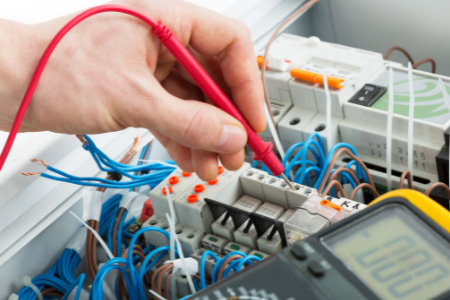A geyser, also known as a water heater, plays a crucial role in providing hot water for various household activities. To ensure its optimal performance and longevity, regular maintenance is essential. By following a few simple maintenance tips, you can extend the lifespan of your geyser and avoid costly repairs. This article presents some practical geyser maintenance tips that will help keep your water heater in excellent condition.
- Regular Flushing: Over time, sediments and mineral deposits can accumulate in the bottom of your geyser's tank, leading to reduced efficiency and potential damage. To prevent this, flush your geyser periodically. Turn off the power supply and connect a hose to the drain valve at the bottom of the tank. Open the valve and let the water flow until it runs clear. Flushing your geyser once or twice a year will help maintain its efficiency.
- Temperature and Pressure Relief Valve (TPR Valve) Check: The TPR valve is a crucial safety feature that releases excess pressure and prevents your geyser from exploding. To ensure it is functioning correctly, perform a simple check. Lift the valve's lever slightly and let it snap back into place. If you hear a gurgling sound or notice water discharge, it indicates that the valve is working properly. If there is no discharge or the valve is leaking, contact a professional for assistance.
- Insulation and Inspecting the Anode Rod: Insulating your geyser and checking the anode rod are essential maintenance steps. Insulation helps retain heat, reducing heat loss and energy consumption. Insulate the pipes and the geyser's tank with suitable insulation material. Additionally, inspect the anode rod annually or as recommended by the manufacturer. This sacrificial rod prevents corrosion by attracting minerals and should be replaced if it is significantly eroded.
- Check for Leaks and Drips: Regularly inspect your geyser for leaks or drips, as they can indicate potential issues. Check around the connections, valves, and pipes for any signs of water leakage. If you notice leaks, address them promptly to avoid water damage and higher utility bills. Tighten loose fittings or replace faulty parts if necessary. If the problem persists, consult a professional plumber.
- Maintain the Surrounding Area: Ensure that the area around your geyser is clean and free from debris. Dust, dirt, and clutter can hinder the unit's performance and restrict proper airflow. Keep the space well-ventilated and clear of any flammable materials. Regularly dust off the geyser and inspect the area for any signs of pests or insects that could cause damage.
- Schedule Professional Servicing: While you can handle basic maintenance tasks, it is advisable to schedule professional servicing annually. A qualified technician will thoroughly inspect your geyser, perform necessary maintenance, and identify any potential issues early on. Regular servicing helps maintain optimal performance, energy efficiency, and safety.
Conclusion:
Taking care of your geyser through regular maintenance can significantly extend its lifespan and ensure it operates efficiently. By following these maintenance tips, you can prevent potential problems, reduce energy consumption, and avoid expensive repairs. Remember, when in doubt or if you encounter complex issues, always consult a professional to ensure the safety and proper functioning of your geyser.





